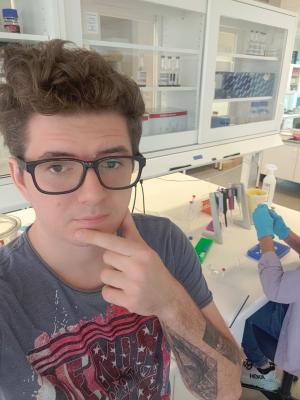- 72 views
Between 22 August and 7 September 2022, the scientific researcher Alexandr Morozov (Laboratory of Molecular Systematics and Phylogeny) participated in a short-term scientific mission within the COST action CA17108, which was organized by the Norwegian University of Applied Sciences (Hamar city). The aim of the mission was the mastering the Nanopore sequencing protocol using DNA isolates from mosquitoes to identify the complete bacterial flora.
DNA was extracted with the use of two different methods: usual DNA extraction (precipitation method) and extraction with depletion of the host DNA. After each extraction, the quality and the amount of the extracted DNA were measured using Qubit and Nanodrop. The extracted DNA from both methods was purified, and then amplified using a 16S barcoding kit. Later the amplification products were pooled and prepared for Nanopore sequencing. Thus, the results of the 16s sequencing of the 19 mosquitos (Aedes, Culiseta, Coquillettidia) have been collected. Thirteen samples (of the total number of 19) gave good results after the sequence and the pilot data about the whole mosquito bacterial flora were obtained, these results being very promising.
Additionally to laboratory works, the mission included lectures on the principles of bioinformatic analysis of the results of the Nanopore sequence, working with databases and several specific software.
To mention the COST action CA17108 started in September 2018 and will end in March 2023. Its main aim is to establish a transboundary network of partners and institutions across Europe to cost effectively address the management of the risk of introduction and spread of exotic invasive Aedes mosquito borne viruses. Dr. Tatiana Șuleșco, leading scientific researcher of the Institute of Zoology, is the member of the action Management Committee on behalf of Moldova.
Roșcov Elena, dr.
Bilețchi Lucia, dr.


